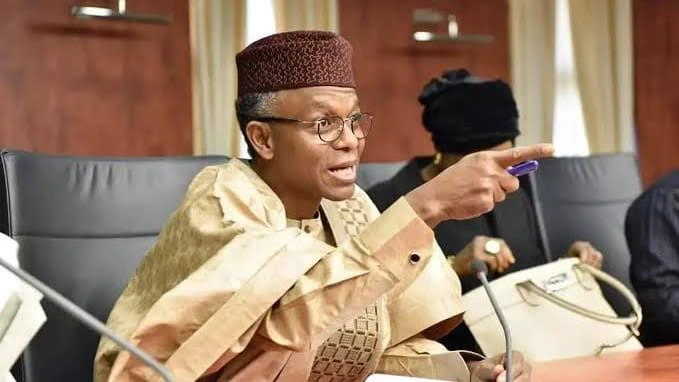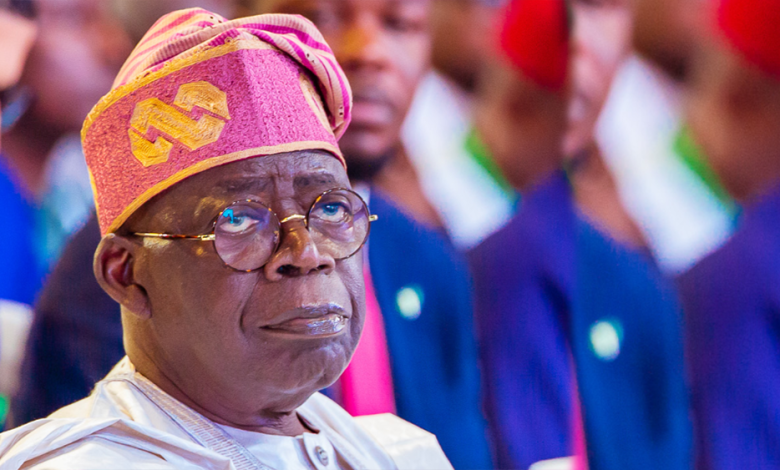Uncategorized
China, Africa to strengthen cooperation in protecting world heritage

A five-year plan was preliminarily formed to boost capacity building for China and Africa regarding world heritage conservation and management at a side event of the ongoing 44th session of the World Heritage Committee of the United Nations Educational, Scientific and Cultural Organization (UNESCO) that kicked off on July 16 in Fuzhou, capital of southeast China’s Fujian province.
The plan is aimed at establishing platforms for more direct exchange of knowledge between Chinese and African experts and scholars in the field of world heritage as well as custodians of world heritage sites so that the two sides can intensify exchange and sharing of experience, jointly carry out capacity building activities, and elevate the level of world heritage protection and management together.
The side event, which took place on July 19 under the theme of “Capacity Building for World Heritage Conservation and Management–Towards Future Cooperation Between Africa and China”, was attended by more than 150 people, including officials from the UNESCO, representatives of international organizations, and Chinese and African experts and scholars.
Before formulating the five-year plan, participants in the event reviewed the fruits of cooperation between China and Africa in the field of world heritage since 2019, and discussed the current situation of capacity building concerning the conservation and management of world heritage in Africa and China.
As the home of the world-famous Great Pyramids and the Sphinx, the lofty Mount Kilimanjaro on savannas, and the amazing ancient stone towers of the Great Zimbabwe ruins shrouded in forests, Africa is a continent endowed with rich and colorful natural and cultural resources. However, due to multiple factors, including social and economic development, Africa has long lagged behind other regions of the world in applying for UNESCO World Heritage status, as well as the management and protection of its world heritage.
There are 12 countries in Africa that still don’t have any heritage recognized as world heritage by the UNESCO, and 22 of the 53 properties included on the List of World Heritage in danger by the World Heritage Committee of UNESCO are located in Africa, according to Souayibou Varissou, executive director of the African World Heritage Fund (AWHF).
At the side event, Varissou called for increasing financial support for the AWHF to improve Africa’s capability to protect world heritage.
The 44th session of the World Heritage Committee tries to give priority to Africa in policy formulation, capacity building, international aid, and upstream procedures, in a bid to enhance the representativeness and improve the balance of world heritage, said Tian Xuejun, director of the Chinese National Commission for UNESCO and also chairman of the 44th session of the World Heritage Committee.
Upholding the idea of the China-Africa community with a shared future, China attaches great importance to its cooperation with Africa in protecting world heritage, held the UNESCO-Africa-China Forum on World Heritage Capacity Building and Cooperation, and supports efforts to carry out training in risk management and protection of world heritage for custodians of world heritage sites in African countries including Uganda, Benin, and Tanzania, Tian said.
Greater efforts need to be made and more strength pooled to put into practice UNESCO’s Global Priority Africa resolution, which demonstrates the status and role of African countries in the cause of world heritage protection, Tian stressed, adding that China will continue supporting African countries in protecting world heritage, assist with talent cultivation in developing countries, and carry out talent cultivation programs for world heritage protection.
Africa urgently needs to strengthen capacity building regarding application for UNESCO World Heritage status, and the management and monitoring of world heritage, said Mechtild Rössler, director of UNESCO World Heritage Center.
Rössler thanked China for its tremendous efforts to help protect world heritage in Africa through platforms of UNESCO, and is looking forward to more new results of the cooperation between China and Africa in world heritage protection.
World heritage in Africa is an integral and distinctive part of the world heritage system, said Lyu Zhou, director of the National Heritage Center of Tsinghua University as well as a professor of the School of Architecture of Tsinghua University.
World heritage in Africa is underrepresented on the existing UNESCO World Heritage List, which not only needs Africa to constantly enhance capacity building concerning application for UNESCO World Heritage status, but also requires the world to realize more deeply the uniqueness of Africa’s history and culture, Lyu said.
An identification and interpretation system that accords with the characteristics of Africa’s world heritage should be established to demonstrate the cultural value of the world heritage in Africa, Lyu added.
Muhammad Juma, chief of the Africa Unit of the UNESCO World Heritage Center, gave a systematic introduction to capacity building efforts in Africa at the side event, and pointed out that capacity building in the future should be oriented to the needs of management organizations of world heritage sites, people who work in the field of world heritage, stakeholders in relevant communities, and researchers of colleges, universities, and research institutes.
Juma also invited China to share its experience in applying for UNESCO World Heritage status and protection and management of world heritage.
By Wan Yu, People’s Daily
Uncategorized
We’ve Known Each Other Since the 90s; I’m Qualified to Call Him a Scumbag – El-Rufai

Fabian
Former Kaduna State Governor and former Minister of the Federal Capital Territory, Mallam Nasir El-Rufai, has weighed in on the Senate’s decision to reject the inclusion of real-time electronic transmission of election results in the proposed electoral reforms.
Speaking in an interview with Trust TV, El-Rufai was asked to react to reports that some members of his party, the African Democratic Congress (ADC), including Peter Obi, staged a protest at the National Assembly on Monday over the issue. In his response, he stressed that electoral reforms must be approached transparently and without undue external influence.
El-Rufai expressed confidence that the Senate’s electoral committee would eventually recommend the reinstatement of the provision for real-time electronic transmission of results.
He noted that many senators are experienced public officials who have previously served as governors, ministers, and legislators, and are genuinely committed to strengthening Nigeria’s democracy. However, he argued that their efforts are being overshadowed by the actions of the Senate leadership, including Senate President Godswill Akpabio.
According to El-Rufai, the controversy should not be blamed on the Senate as an institution but on its leadership. He alleged that the presiding officer was acting under external pressure and not in line with the collective will of the majority of senators.
He further predicted that when the Senate reconvenes, lawmakers would be forced to unite, resist such pressure from the leadership, and ensure that the proposed reforms are not undermined.
In a strongly worded remark directed at Akpabio, El-Rufai said:
“I do not consider him distinguished. We have known each other since the 90s. He knows how far we’ve been through, and I think I am qualified to call him a scumbag—and he knows why.”
Uncategorized
Electronic Transmission: This Is Just a Warning Protest, We’ll Wait Till Tomorrow – Isaac Fayose

Fabian Apechihin
Businessman and activist Isaac Fayose has described Monday’s protest at the National Assembly complex as only a warning, insisting that more action may follow depending on the outcome of lawmakers’ deliberations.
A cross-section of Nigerians on Monday morning converged on the National Assembly to demand that electronic transmission of election results be made compulsory in Nigeria’s electoral laws.
Although the Senate has issued several clarifications amid reports that it rejected electronic transmission of results, protesters maintained that lawmakers must go further by explicitly inserting the phrase “real-time electronic transmission” into the proposed legislation.
In response to the public outcry, the Senate announced on Sunday that it would hold an emergency plenary session on Tuesday to address the concerns.
Speaking to journalists during the protest, Fayose said the decision taken at the emergency sitting would determine whether the demonstrations would continue.
“We all know what happens in a collation room,” he said. “A collation room is where you soak garri with water at night and by morning it has swollen and turned into eba.
“For Nigerians to be satisfied, what we need is electronic transmission of results. They are already trying to deny it. Let’s wait till tomorrow. This protest is just a warning.”
Fayose also questioned the logic of abandoning electronic transmission after huge investments had been made.
“Something we spent close to a trillion naira to achieve, you now want to throw it away? That’s like taking our money and dumping it in the gutter. It cannot happen,” he added.
Uncategorized
US Judge Issues Final Ultimatum as FBI, DEA Delay Release of Tinubu Records

Fabian Apechihin
A United States federal judge, Beryl A. Howell, has sharply criticised the Federal Bureau of Investigation (FBI) and the Drug Enforcement Administration (DEA) over what she described as deliberate delays in releasing records related to Nigerian President Bola Tinubu.
The documents are being sought through a Freedom of Information Act (FOIA) request filed in 2022 by transparency advocate Aaron Greenspan, with backing from investigative journalist David Hundeyin. The records are expected to provide details on a narcotics-related case from the early 1990s that led to Tinubu forfeiting $460,000 to the U.S. government—allegations he has consistently denied.
In a ruling delivered on February 3, Judge Howell of the U.S. District Court for the District of Columbia rebuked both agencies for repeatedly missing court-ordered deadlines, noting that the case has dragged on for more than three years without substantial progress.
She subsequently imposed new deadlines, warning that further delays would no longer be tolerated.
Greenspan, the founder of transparency platform Plainsite, filed the FOIA request in June 2022. In 2023, the FBI announced it would release approximately 2,500 pages of Tinubu-related records in monthly batches of 500 pages. However, the process stalled after Tinubu opposed the disclosure, requesting a delay pending the outcome of a Nigerian Supreme Court case challenging his election victory. He argued at the time that releasing the records would “adversely affect” him.
Although Judge Howell approved the temporary pause and Tinubu’s election was later upheld, the FBI and DEA continued to seek extensions, further slowing the release of records linked to longstanding allegations of involvement in cocaine trafficking.
Court filings show that the FBI was expected to submit an updated status report in May 2025, but delayed until January 2026, when it sought yet another extension to February—prompting sharp criticism from the court.
“Defendant FBI has produced no records, despite initially anticipating completion of searches by August 1, 2025,” Howell stated, adding that deadlines had been repeatedly shifted with “minimal explanation.”
She further noted that, like the DEA, the FBI had failed to provide a credible timeline for completing the processing and release of the requested documents.
Judge Howell also dismissed the DEA’s justification for withholding documents for more than six months under the guise of inter-agency consultations.
“Defendant DEA has produced some documents … but has repeated the same explanation for six months and four joint status reports concerning twelve remaining pages not yet released,” she said.
The court ordered the DEA to provide Greenspan with a Vaughn index detailing the legal basis for redacting 50 pages and withholding 172 pages of the records. The agency was also directed to submit sworn affidavits explaining, page by page, when the remaining documents were sent for consultation, expected review timelines, and steps taken to expedite the process.
Similarly, the FBI was ordered to file sworn statements accounting for its repeated failure to meet court deadlines and to begin releasing all non-exempt Tinubu-related records. The bureau was instructed to deliver an initial batch within two weeks of January 30, 2026, submit a detailed schedule for releasing the second batch of 500 pages by March 13, and complete full disclosure by June 1, 2026.
Judge Howell further ordered both agencies to file joint status reports every 14 days, starting February 27, until all responsive records have been processed and released.
-

 Uncategorized5 years ago
Uncategorized5 years agoFG, states urged to harness flooding for ranching, others with technology – Agbaje
-

 Headlines10 years ago
Headlines10 years agoBreaking: EFCC seals Borno House of Assembly, as Hon members take to their heels
-

 News12 years ago
News12 years agoNigeria Security Operatives Stage Manhunt For Homosexual Perpetrator
-

 News9 years ago
News9 years agoHow 21-year-old Girl fled community over accusation of lesbianism
-

 News10 years ago
News10 years agoYobe Gov Moves Against Deputy
-

 Opinion7 years ago
Opinion7 years ago7 signs she has friend zoned you
-
Technology4 years ago
Online job placement company headhunts women
-

 Headlines10 years ago
Headlines10 years agoBorno Dep Gov Abducts Another Church Leader






